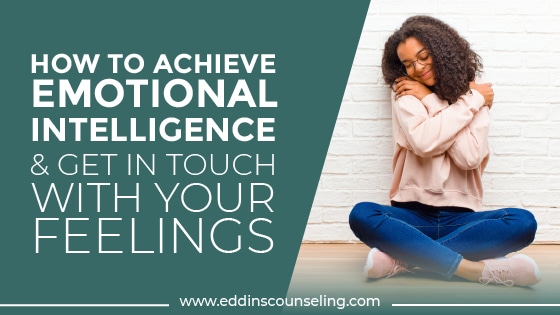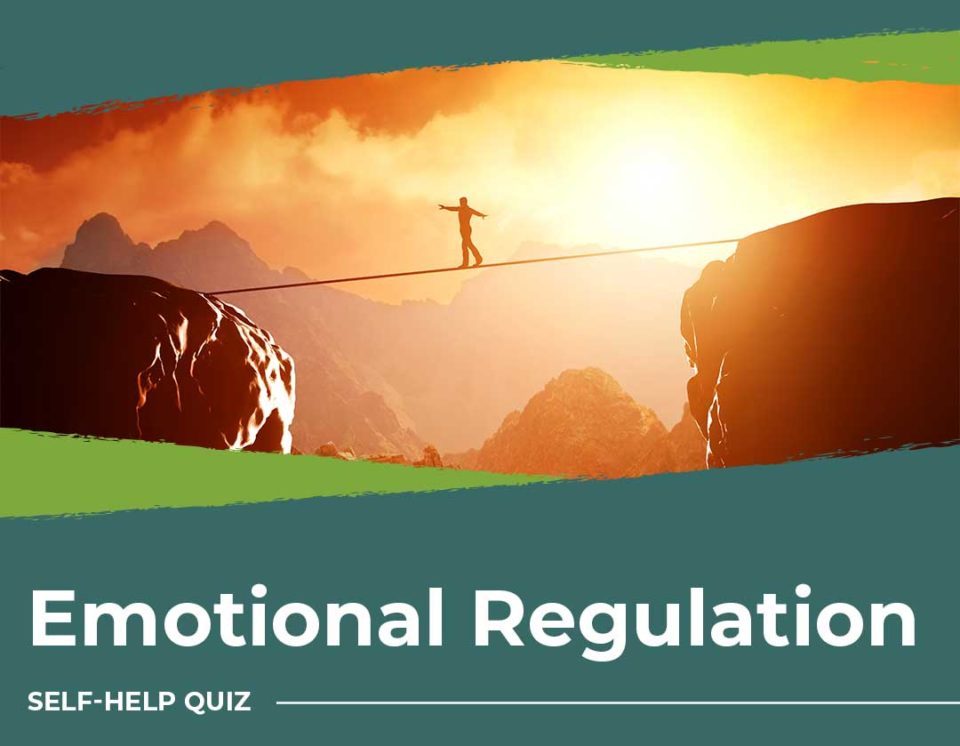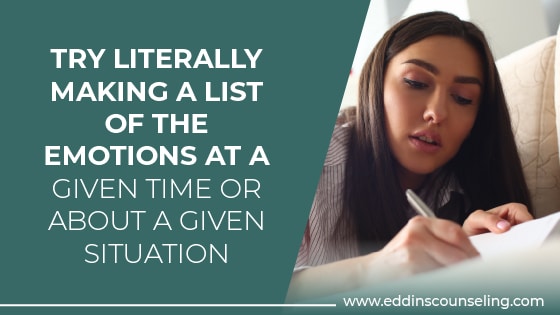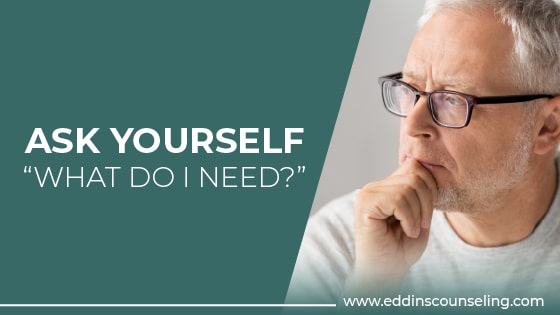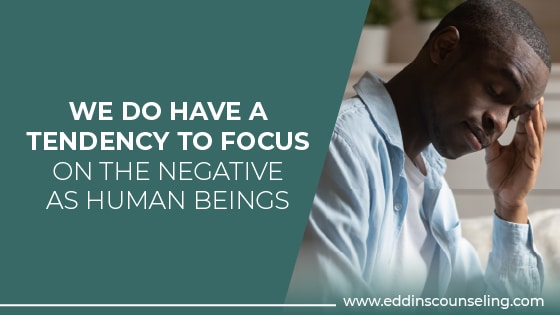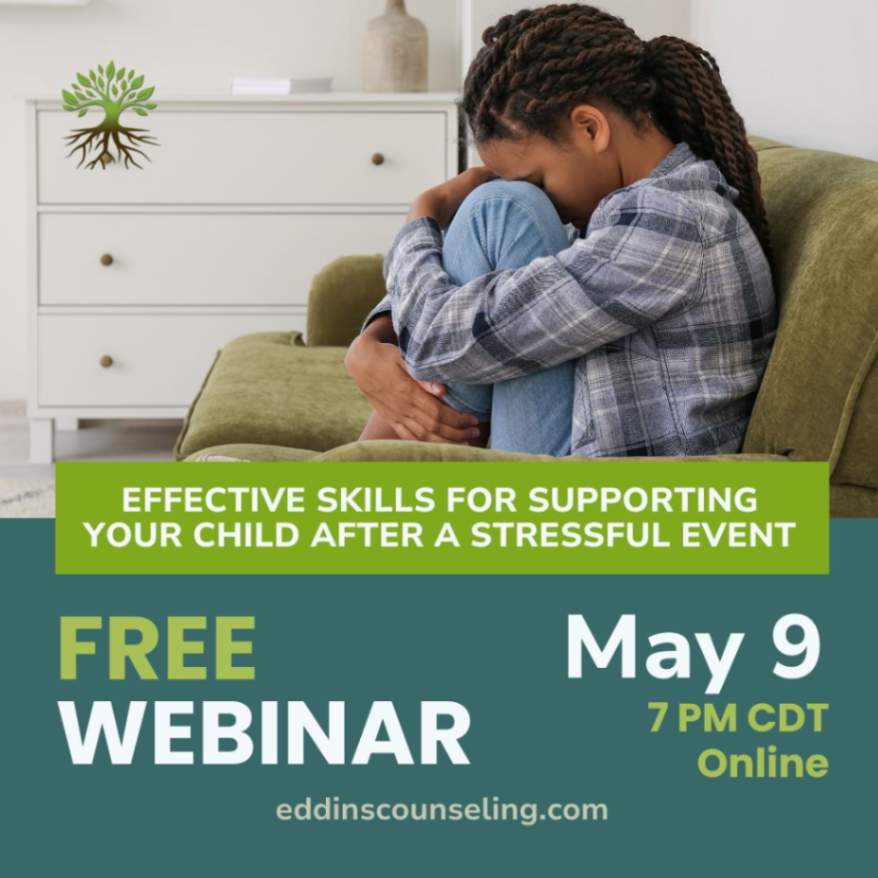February 22, 2021
How to Achieve Emotional Intelligence & Get In Touch with Your Feelings
Written by Sara Lane
Posted in Emotional & Mental Health and with tags: emotional health, emotional regulation, mental health
Your journey within is one of healing and discovery.
Each of us gets to experience our own inner world, making it impossible for outsiders to ever see things as we do. Simultaneously (and somewhat ironically), we cannot always see ourselves clearly.
For example, this explains why it sometimes takes someone else’s observation for us to identify our emotions.
In moments like this, you might say we’re not exhibiting emotional intelligence. It’s neither rare nor unusual.
To emote and to work toward emotional regulation is part of the human condition.
Ralph Waldo Emerson once stated, “Be not the slave of your own past. Plunge into the sublime seas, dive deep and swim far, so you shall come back with self-respect, with new power, with an advanced experience that shall explain and overlook the old.”
When we are afraid, angry, uncomfortable with, or not resolved with our past, it has the power to control us, (thus we are no longer in charge, we are the slave). It shows up for us as “resistance,” for lack of a better word, to allow ourselves to “dive deep” and really experience those emotions.
With some work and focus, the good news is that we can most definitely get in touch with our feelings and “plunge into the sublime” because that is what it is. The emotions that exist in the deepest, most vulnerable parts of ourselves are the best part of ourselves.
Your journey within is one of healing and discovery. To be present and compassionate with them when they occur, reacting instinctively to those feelings.
What is Emotional Intelligence?
The Institute for Health and Human Potential defines emotional intelligence (EI) as the ability to “recognize, understand, and manage our own emotions” as well as “being aware that emotions can drive our behavior and impact people (positively and negatively).”
It is an essential tool for basically any situation involving pressure. Some examples include:
- giving and receiving feedback,
- dealing with challenging relationships, and
- working through setbacks and failures.
The term comes from researchers in the 90’s explaining its significance in emotional health. “It’s a scientific fact that emotions precede thought.”
Emotions can override our cognitive function, decision-making, and interpersonal skills.
When we can ascertain, interpret, and manage our emotions, it “helps us be more successful in both our personal and professional lives.”
Take our emotional regulation quiz!
Why Do I Need to Feel My Feelings?
Emotions are complicated, and emotional regulation requires balance. Even simple feelings can present themselves in tricky ways. This ensures that every single one of us will lose touch with our feelings every now and then.
In the age of social media, in fact, it can be harder than ever to understand what we feel and why.
Everything is moving too quickly. The people in our lives are often viewed solely by their carefully curated profiles.
Our minds may have trouble digesting this steady flow of unreliable input.
To get in touch with your feelings is to make time and space to process. It is also a commitment to self-awareness.
We are all so profoundly influenced by outside input; it requires a conscious effort to comprehend our genuine reactions fully.
You may find it useful to get back to basics. Try making a written list of the emotions at a given time or about a given situation.
What’s fascinating is how frequently we rely on the obvious choices, e.g.
- Happiness
- Fear
- Anger
- Sadness
- Anxiety
- Guilt
- Confusion
With time, contemplation, and practice, you will be able to break down these broad categories into grey areas like:
- Embarrassment
- Boredom
- Desperation
- Resentment
- Disgust
- Shame
- Doubt
- Betrayal
- Vulnerability
- Gratitude
What Does It Mean to Feel Our Feelings and Connect with Our Emotional Self?
Normally, when we experience something that triggers ourselves’ vulnerable parts, we experience an automatic chain reaction of responses that happen almost instantaneously. This includes thoughts, physical sensations, feelings, and behaviors.
By the time we’re in this chain reaction, we’ve usually moved past the initial vulnerable emotion through a series of experiences that leads to problem behavior (overeating, drinking, avoiding, numbing), an overwhelming or reactive emotion such as anger or anxiety, getting stuck in negative thinking (what’s wrong with me), or even getting stuck in a perpetual feeling such as guilt, shame or depression.
The first step to being present with your vulnerable emotions is recognizing this pattern of events that happens.
- Where do you typically find yourself stuck?
- Reacting with anger?
- Running frantically from one fire to the next?
- Getting stuck in depression or isolation?
- Feeling anxious or fearful?
- Are you feeling overpowered by a problem behavior such as excessive TV watching or internet surfing, overeating, drinking, or other behavior?
How well do you manage your emotions? Take our self-test and find out.
How to Feel Your Feelings, Tuning In
Step 1: Take in a few deep breaths and really tune in to your body. Close your eyes and check-in with yourself, “how do I feel right now?” When you’re ready, open your eyes and write as much as you can in a stream of consciousness fashion, welcoming all of your emotions.
Step 2: Place 1 hand on your chest and 1 hand on your belly as you attempt to feel what is happening in your body and get out of your head. Reflect again. Ask yourself, “What do I need? What do I need in this time and space.” Could it be to stretch, more support, connection?
Be specific – ask yourself, what would it look like if this need were met? Our basic needs include getting rest, getting sensual pleasure, expressing feelings, being heard and understood, being intellectually and creatively stimulated, receiving comfort and warmth.
Step 3: Take another deep breath in and ask, “what do I want?” Not what others say, what do YOU truly want for yourself?
Step 4: Close your eyes and tune inward and see if an intention wants to emerge, “to be….”
How to Identify Your Feelings and Cultivate Emotional Intelligence
When you first try to focus on your feelings, you might notice your thoughts.
Keep in mind that thoughts are usually sentences or phrases like, “I probably shouldn’t eat that or I’ll gain weight,” whereas a feeling is described in two to three words like, “I feel sad,” or “I’m mad.”
Remember that “I feel fat” is a physical sensation, not an emotion, so keep going even if your feelings aren’t obvious at first.
Become aware of your breathing for clues about your emotions.
- Are you holding your breath?
- Is it rapid and shallow?
- Slow and rhythmic?
Inhale and exhale deeply as you “sit” with your feelings for one minute. Observe and label the emotion.
If you feel confused about your emotions, consider these common feelings: anger, sadness, fear, stress, guilt, love, or pleasure. Keep in mind that feelings fall on a continuum: anger, for instance, can range from annoyed to enraged; sadness can range from disappointed to grief-stricken.
Notice Your Emotions Ebb and Flow
Even intense emotions will subside as you observe them. If they are too much to bear for more than a minute, you can then make a conscious decision to redirect your attention to something else for now.
Write your feelings down digitally or manually and complete the sentence “I feel …” or “I am … “ For example, “I feel lonely” or “I am angry with my boss,” or “I am worried about my child.”
Picture a close friend or family member observing your thoughts and feelings non-judgmentally. What would they describe? Invite the part of yourself who is a good friend to others, who gently parents your children, or who effectively manages a work team to help you sort out your feelings.
Imagine that there’s a pressure valve on your body that you can turn to release some of your feelings. You can turn the valve higher or lower to control the flow of emotions. Describe your feelings as a picture or metaphor. Start with, “my feelings are like…” and compare them to a color, an animal, a familiar story, or whatever images surface.
Draw images or scribble on a pad of paper to see what emerges. Emotional intelligence is learned through gentle exploration.
So, notice whether cravings for a certain food give you clues about what you’re feeling or needing. For example, a desire for comfort food from your childhood could be a signal that you’re feeling stressed. Talk about your thoughts and feelings out loud or into a tape recorder.
Discuss your feelings with a trusted friend or family member. Seek the assistance of a counselor or therapist if you feel overwhelmed, scared, or unable to identify or work through your emotions.
4 Ways to Get in Touch with Your Feelings
1. Listen to Your Body
Your mind is masterful at rationalization, denial, and delusion. All the while, your body may be expressing the underlying realities. Tune in to your body for guidance that cognitive dissonance is at play.
2. Digital Disconnect
Step away from your devices. Schedule regular, non-negotiable digital breaks to give your mind a mini-vacation. Reminder: The fear of missing out is far less critical than communing with your own emotions.
3. Don’t Immediately Assign Positive or Negative Value
It’s only natural to cast yourself in a positive light. By doing so, you may be repressing emotions like anger, jealousy, and resentment. Because such feelings are commonly deemed “negative,” we reject them and lose a chance to get in touch with feelings that need attention.
4. Commit to Healthy Communication
Thoughts and language are interwoven. By honing your communication skills, you may find yourself better skilled at describing and appreciating your feelings. This includes expressing your emotions in a healthy way, as often as possible.
By doing so, you empower the people in your life to also get in touch with your feelings.
Are You Stuck? Figure Out How You Got HERE
The next time you find yourself in the “stuck” place, see if you can start to backtrack and identify the chain of events that occurred.
By the time we are adults, our brains are already wired a certain way to respond to various internal and external stimuli. This includes the feelings and sensations we experience internally. Our own feelings can be interpreted as threats, activating our primitive instincts to get away, avoid, or fight to protect ourselves.
Yet, it is also not just the insight of the past that is enough for us to get unstuck and move forward, which is essential for learning emotional intelligence. Perhaps you may have heard people talking about being more present; that is crucial, too.
“You know what, don’t just be sad.”
Let sadness hit you like a truck. Let it come and let it fill you. Feel it brim and spill over as you cry. Sadness is beautiful. “Sadness is poetic; you’re lucky to live sad moments.” Because when happiness comes and you let yourself be immersed in the relief happiness brings, it makes each experience better.
A full life has joy and happiness as it is sadness and loss. You won’t enjoy the true beauty of one if you seek to ignore the other.
How to Maintain Emotional Intelligence: 3 Questions
Ask yourself, regularly: ‘Am I present?’
In other words, “am I focused on what I am doing, or engaged with the world around me, or paying full attention to the people with whom I am interacting?”
- If the answer is yes, great; notice how much more effective you are, or how much more fulfilling your life is, when you are fully present.
- And if the answer is no, then gently acknowledge that you are distracted, unfocused, half-present, disengaged, or operating on ‘automatic pilot’ – and refocus your attention on wherever you are, whatever you are doing, whoever you are with.
Ask yourself, regularly: ‘Am I open?’
In other words, “am I making room for my thoughts and feelings; allowing them to flow freely through me, instead of resisting them, running from them, or getting swept away by them?”
- If the answer is yes, notice how much easier your life is when you allow your emotional weather to be as it is.
- If the answer is no, kindly acknowledge this, and then see if you can gently open up and make some space for your thoughts and feelings. For example, breathe into a feeling, or acknowledge ‘I’m having the thought that …’ and see what difference even a little more openness can make.
Ask yourself, regularly: ‘Am I doing what matters?’
In other words, “am I acting on my values, doing something meaningful or purposeful, behaving like the kind of person I want to be?”
- If the answer is yes, take a moment to savor the richness, this adds to your life.
- If the answer is no, kindly and gently acknowledge this, then get in touch with your values. You may then decide to go and do something completely different or continue what you are doing, but now consciously link it to your values.
These three simple questions – Am I present? Am I open? Am I doing what matters? – form the basis of psychological flexibility, so ask them regularly, and notice your life transform.
How well do you manage your emotions? Take our self-test and find out.
Emotional Intelligence, Learn with Therapy
People often say I feel my emotions all the time! It’s hard to NOT feel them.
Why would I want to go even deeper into them? It feels scary, uncomfortable, and counterintuitive.
I don’t want to fall apart or wallow in them and get stuck in depression. I need to be able to function!
All of these are very reasonable and rational responses. It is counterintuitive and uncomfortable to dive deep into the pain, vulnerability, unmet needs, and longing within us.
Yet often, when someone says, “I feel my feelings all the time,” it’s the resistance to feeling the primary feelings that are creating the intensity or emotional reactivity.
So, people are often fearful of therapy, “of digging up the past,” and acknowledging old memories and feelings. Usually, this is because the past was painful, or it is difficult to recognize that needs weren’t met, and it may even be sad to let go of the more “idealistic” memories.
Exploring the past doesn’t mean placing blame or tarnishing positive memories. We all want to hold onto the good, and it’s not a bad thing to want to do so! We need it to survive, to move forward, to persevere, and have hope.
That being said, we do have a tendency to focus on the negative as human beings, so holding onto the positive is very important.
Yet, this fear of the past, or the feelings deep within us, keeps us stuck. Whether we acknowledge it or not, the unmet needs, the longing, and the pain is still there, deep within us.
That’s where therapy comes in. Learn emotional regulation.
Achieving emotional intelligence will give us the power not to be slaves to our emotions, feelings, or memories. That pain shows up everywhere if it’s not addressed.
It shows up when we feel “out of control” with our emotions, behaviors, or obsessions and shows up every time we don’t allow ourselves to acknowledge our deepest and most vulnerable parts and feeling empty and numb, disappointed, or unsatisfied. It maintains the part of us that feels like an imposter, unworthy, inadequate, unlovable, or afraid to be “found out.”
The key to not being a slave to our past is not necessarily to reprocess every little thing that happened. The key is to feel the deepest longings and vulnerable emotions within us that have been present for us since our earliest years, and therapy is vital in this process.
Feel those feelings, acknowledge them, and be compassionate as we are guided by a caring yet neutral observer.
Do You Need Help?
If you find it challenging to get in touch with your feelings, try getting in touch with someone who can help you. Dwelling in the digital age makes it more critical than ever to have space where you feel calm and safe.
Your therapy sessions can play that role in your life.
It’s where you’ll be guided through exercises and explorations that can strip away some of the distractions and diversions. In such a state, you can move toward more profound clarity about what you feel and why.
Finally, if you’re ready to cultivate emotional intelligence and learn emotional regulation with a mental health professional, please reach out for a consultation today. At Eddins Counseling Group in Houston, TX, we have experienced therapists that can support you with online therapy treatment. Give us a call at 832-323-2355 or book an appointment online.
Grounding & Self Soothing
Get instant access to your free ebook.
Why You Feel This Way
Get instant access to your free ebook.

